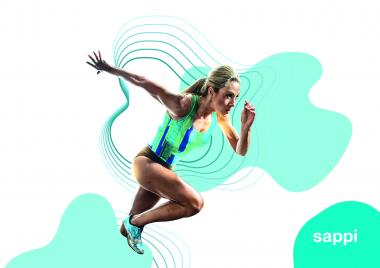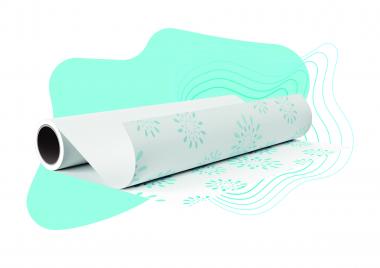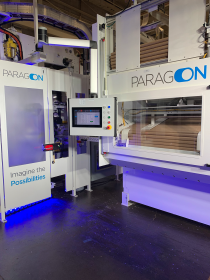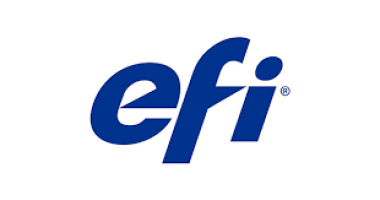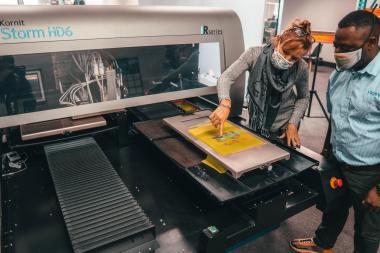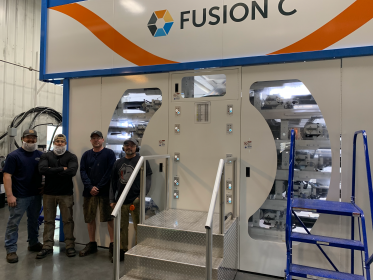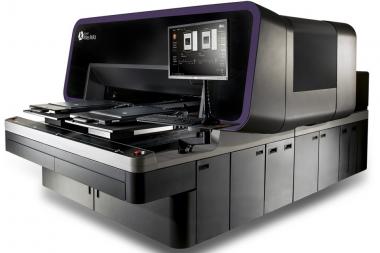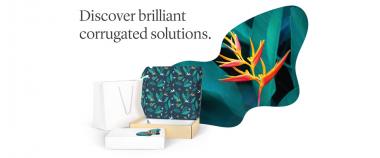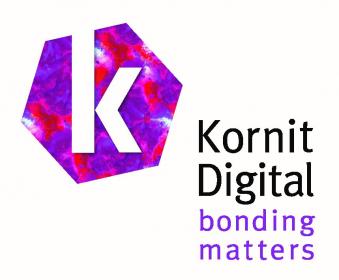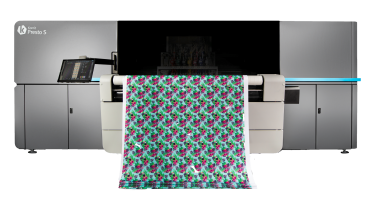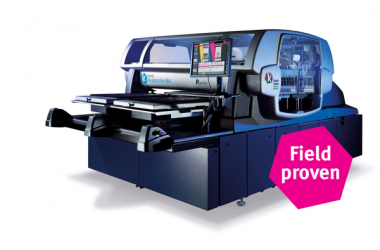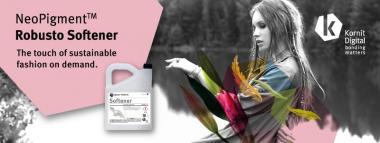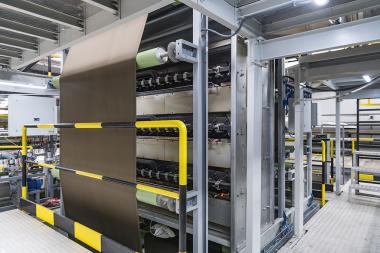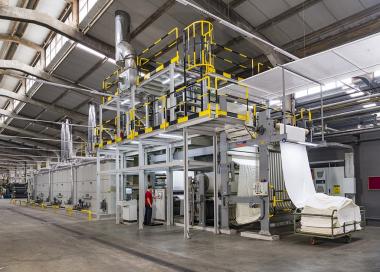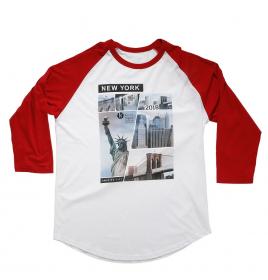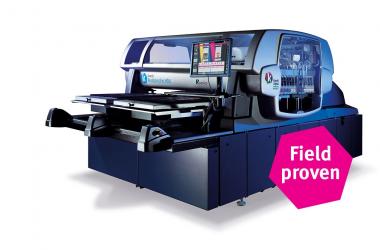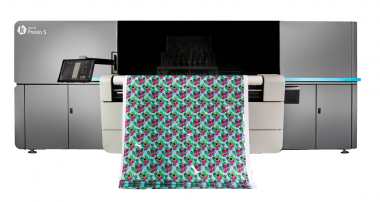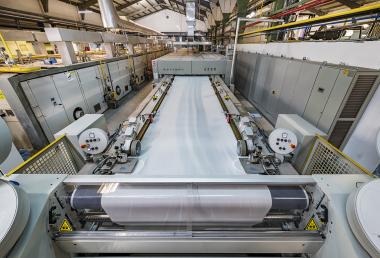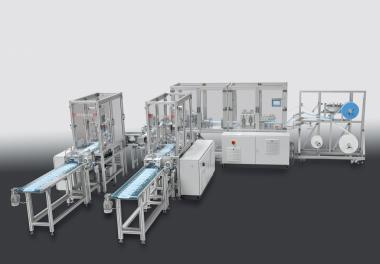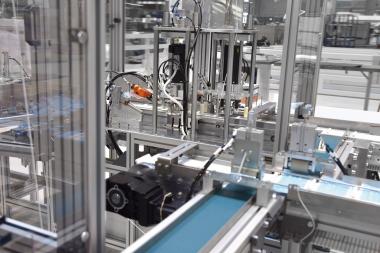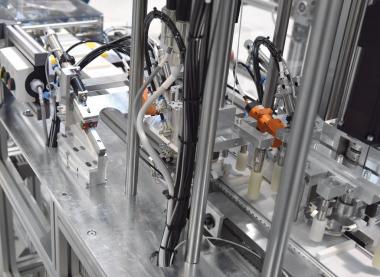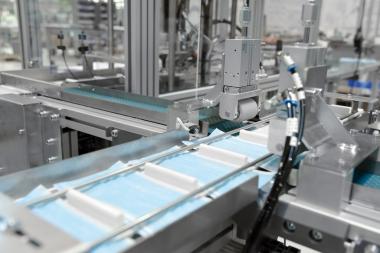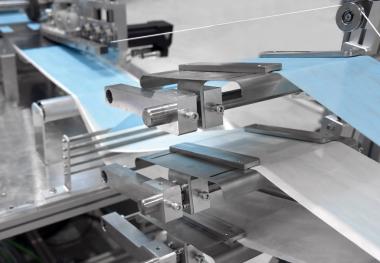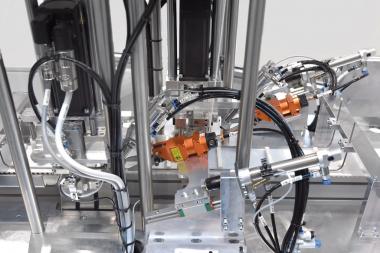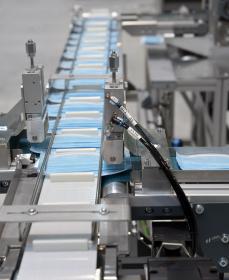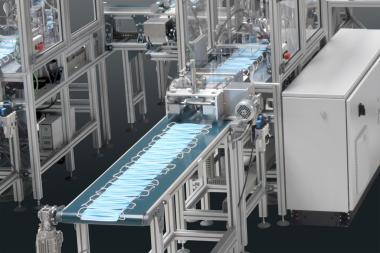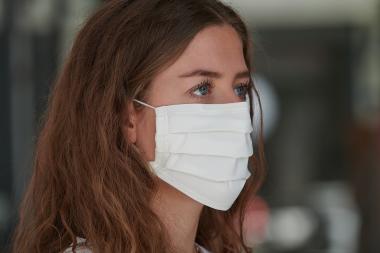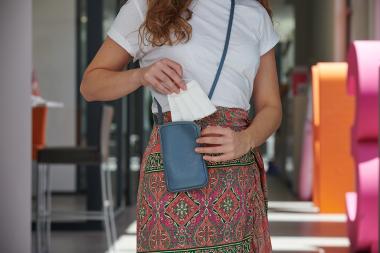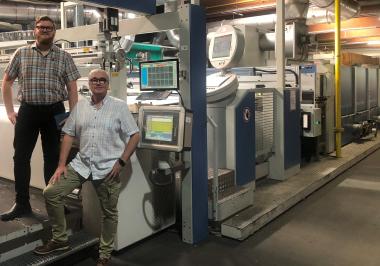Sappi: New Sublimation Paper for Textile Industry
Sappi offers Transjet Tacky Industrial, a coated dye sublimation paper for digital transfer printing, specially developed for high-speed inkjet printing on highly elastic textiles. Also new is the uncoated dye sublimation paper Basejet, which has been developed for light designs for high-speed digital printing of fashion and home textiles.
- Transjet Tacky Industrial: Immediate tack effect, high ink transfer, fast ink drying; no ghosting on elastic textiles thanks to reversible tack
- Basejet: Consistent print quality for light designs, fast ink-drying, very fast transfer process
Transjet Tacky Industrial enables highly elastic fabrics to be printed on industrial high-speed machines that work with a higher glycol content, such as printheads from Kyocera. The paper is first printed with the desired image or pattern which is then transferred to the elastic polyester fabric by means of heat and pressure.
Sublimation paper for the textile industry
The new dye sublimation paper offers many benefits for the textile industry, which frequently has to adapt to changing trends. As it is suitable for use on high-speed digital printers, significantly more designs can be printed in the same time than was previously possible on plotters. Thanks to a special heat-reactive coating, the paper adheres to highly stretchable content, while the reversible tack prevents ghosting and textile shrinkage. Transjet Tacky
Industrial has a high ink load capacity so the print can be better accentuated due to strong colour saturation. The design remains clearly visible when the fabric is stretched to its maximum, which is often the case with sportswear in particular.
Basejet specially for light designs
Sappi has also added the Basejet uncoated dye sublimation paper to its portfolio, an additional solution for the digital printing of fashion and home textiles in consistent print quality. The uncoated dye sublimation paper is intended in particular for light designs and cost-driven production processes.


